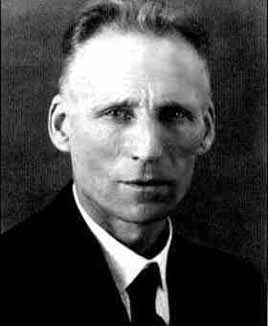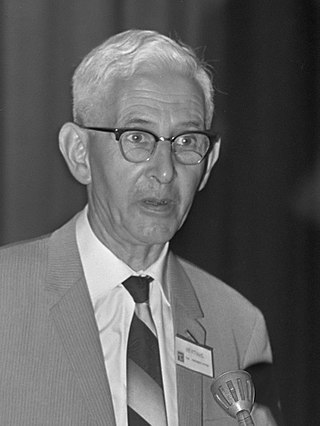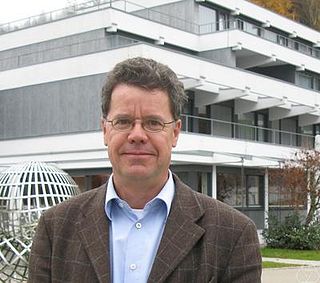In the philosophy of mathematics, intuitionism, or neointuitionism, is an approach where mathematics is considered to be purely the result of the constructive mental activity of humans rather than the discovery of fundamental principles claimed to exist in an objective reality. That is, logic and mathematics are not considered analytic activities wherein deep properties of objective reality are revealed and applied, but are instead considered the application of internally consistent methods used to realize more complex mental constructs, regardless of their possible independent existence in an objective reality.
Mathematical logic is the study of formal logic within mathematics. Major subareas include model theory, proof theory, set theory, and recursion theory. Research in mathematical logic commonly addresses the mathematical properties of formal systems of logic such as their expressive or deductive power. However, it can also include uses of logic to characterize correct mathematical reasoning or to establish foundations of mathematics.
In the philosophy of mathematics, constructivism asserts that it is necessary to find a specific example of a mathematical object in order to prove that an example exists. Contrastingly, in classical mathematics, one can prove the existence of a mathematical object without "finding" that object explicitly, by assuming its non-existence and then deriving a contradiction from that assumption. Such a proof by contradiction might be called non-constructive, and a constructivist might reject it. The constructive viewpoint involves a verificational interpretation of the existential quantifier, which is at odds with its classical interpretation.

Luitzen Egbertus Jan Brouwer, usually cited as L. E. J. Brouwer but known to his friends as Bertus, was a Dutch mathematician and philosopher who worked in topology, set theory, measure theory and complex analysis. Regarded as one of the greatest mathematicians of the 20th century, he is known as the founder of modern topology, particularly for establishing his fixed-point theorem and the topological invariance of dimension.

Arend Heyting was a Dutch mathematician and logician.
In mathematical logic and philosophy, Skolem's paradox is a seeming contradiction that arises from the downward Löwenheim–Skolem theorem. Thoralf Skolem (1922) was the first to discuss the seemingly contradictory aspects of the theorem, and to discover the relativity of set-theoretic notions now known as non-absoluteness. Although it is not an actual antinomy like Russell's paradox, the result is typically called a paradox and was described as a "paradoxical state of affairs" by Skolem.

Hendrik Pieter (Henk) Barendregt is a Dutch logician, known for his work in lambda calculus and type theory.
Logics for computability are formulations of logic which capture some aspect of computability as a basic notion. This usually involves a mix of special logical connectives as well as semantics which explains how the logic is to be interpreted in a computational way.

Jan Arnoldus Schouten was a Dutch mathematician and Professor at the Delft University of Technology. He was an important contributor to the development of tensor calculus and Ricci calculus, and was one of the founders of the Mathematisch Centrum in Amsterdam.

Michael Paul Fourman FBCS FRSE is Professor of Computer Systems at the University of Edinburgh in Scotland, UK, and was Head of the School of Informatics from 2001 to 2009.
Bar induction is a reasoning principle used in intuitionistic mathematics, introduced by L. E. J. Brouwer. Bar induction's main use is the intuitionistic derivation of the fan theorem, a key result used in the derivation of the uniform continuity theorem.
Johannes Aldert "Jan" Bergstra is a Dutch computer scientist. His work has focussed on logic and the theoretical foundations of software engineering, especially on formal methods for system design. He is best known as an expert on algebraic methods for the specification of data and computational processes in general.
In proof theory, a discipline within mathematical logic, double-negation translation, sometimes called negative translation, is a general approach for embedding classical logic into intuitionistic logic. Typically it is done by translating formulas to formulas which are classically equivalent but intuitionistically inequivalent. Particular instances of double-negation translations include Glivenko's translation for propositional logic, and the Gödel–Gentzen translation and Kuroda's translation for first-order logic.
In intuitionistic analysis and in computable analysis, indecomposability or indivisibility is the principle that the continuum cannot be partitioned into two nonempty pieces. This principle was established by Brouwer in 1928 using intuitionistic principles, and can also be proven using Church's thesis. The analogous property in classical analysis is the fact that every continuous function from the continuum to {0,1} is constant.
In intuitionistic mathematics, a choice sequence is a constructive formulation of a sequence. Since the Intuitionistic school of mathematics, as formulated by L. E. J. Brouwer, rejects the idea of a completed infinity, in order to use a sequence, we must have a formulation of a finite, constructible object that can serve the same purpose as a sequence. Thus, Brouwer formulated the choice sequence, which is given as a construction, rather than an abstract, infinite object.

In a controversy over the foundations of mathematics, in twentieth-century mathematics, L. E. J. Brouwer, a proponent of the constructivist school of intuitionism, opposed David Hilbert, a proponent of formalism. The debate concerned fundamental questions about the consistency of axioms and the role of semantics and syntax in mathematics. Much of the controversy took place while both were involved with Mathematische Annalen, the leading mathematical journal of the time, with Hilbert as editor-in-chief and Brouwer as a member of its editorial board. In 1920, Hilbert succeeded in having Brouwer, whom he considered a threat to mathematics, removed from the editorial board of Mathematische Annalen.

Izak (Ieke) Moerdijk is a Dutch mathematician, currently working at Utrecht University, who in 2012 won the Spinoza prize.
George François Cornelis Griss, usually cited as G. F. C. Griss, was a Dutch mathematician and philosopher, who was occupied with Hegelian idealism and Brouwers intuitionism and stated a negationless mathematics.

Johannes Albert Neuhuys was one of the best-known painters of the Laren School and a friend of many of the Hague School painters.
Mathematics in Nazi Germany was heavily affected by Nazi policies. Though Jews had previously faced discrimination in academic institutions, the Civil Service Law of 1933 led to the dismissal of many Jewish mathematics professors and lecturers at German universities. During this time, many Jewish mathematicians left Germany and took positions at American universities.








